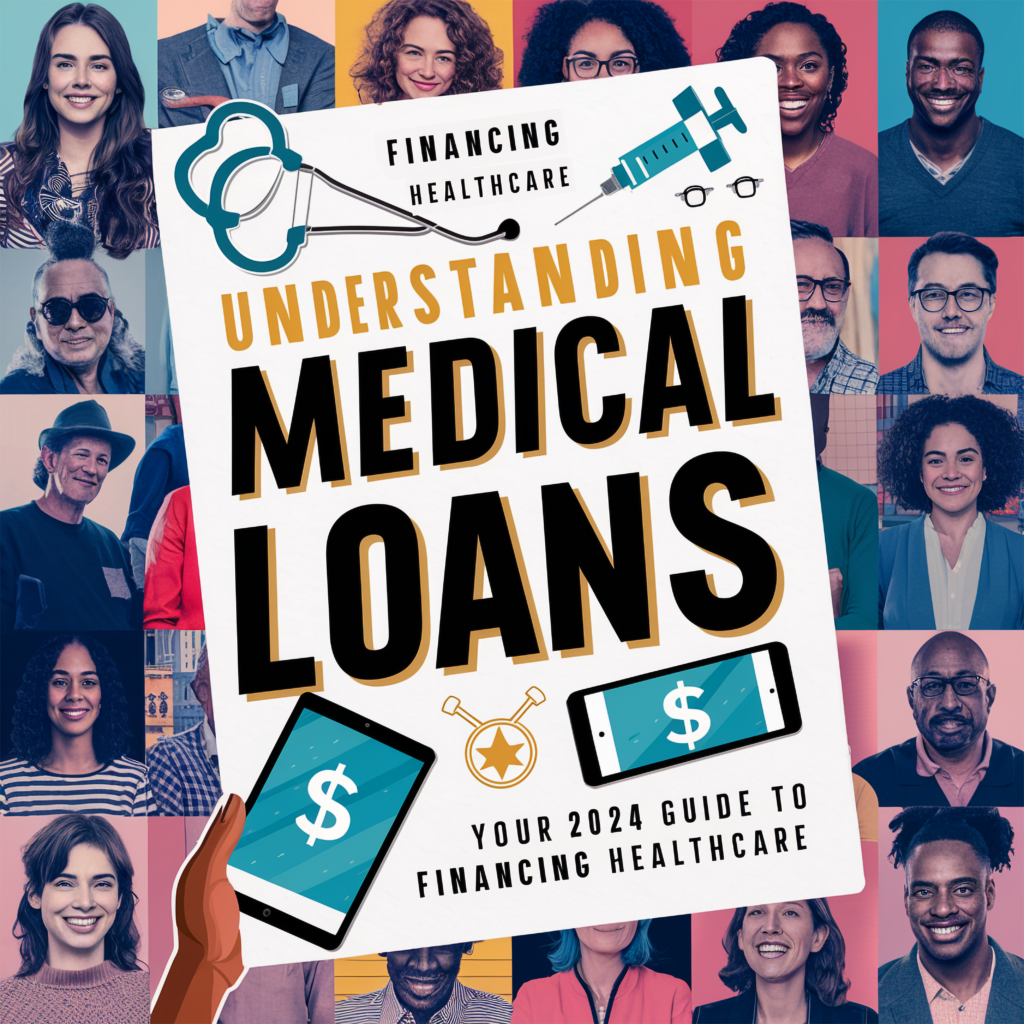
Understanding Medical Loans: Your 2024 Guide to Financing Healthcare
With the rising costs of healthcare, affording necessary medical treatments and procedures can be a daunting task. Medical loans offer a viable solution for those needing financial assistance to manage healthcare expenses. This comprehensive guide will explore what medical loans are, their benefits, and how you can secure one in 2024.
What are Medical Loans?
Medical loans are personal loans designed specifically to cover healthcare expenses. These could range from unexpected emergencies to elective surgeries. Unlike traditional loans, medical loans often feature lower interest rates and more flexible repayment options, making them an attractive option for many.
Types of Medical Loans
Several types of medical loans cater to different needs:
Unsecured Medical Loans
Unsecured medical loans do not require collateral. Your eligibility and the loan amount are primarily determined by your credit score and financial history. These are suitable for individuals who may not own valuable assets but have a good credit score.
Secured Medical Loans
Secured loans require collateral such as a home or car. In return, you may receive a lower interest rate compared to unsecured loans. These are ideal for those who need a larger loan amount or have a lower credit score.
Medical Credit Cards
Medical credit cards are designed exclusively for healthcare expenses. They often come with 0% interest periods, allowing cardholders to pay off the balance without incurring interest, provided they do so within the promotional period.
Benefits of Medical Loans
Choosing a medical loan offers various benefits, including:
- Immediate Access: Get funds quickly to cover urgent medical needs.
- Flexible Repayment Terms: Choose from various repayment options that fit your financial situation.
- Lower Interest Rates: Enjoy lower interest rates compared to credit cards and other unsecured loans.
- No Collateral Needed (for Unsecured Loans): Secure a loan without risking your assets.
Eligibility Criteria
While eligibility requirements may vary between lenders, common criteria include:
- Credit Score: Typically, a credit score of 600 or higher is required for unsecured loans.
- Income: Having a steady income source helps ensure timely repayments.
- Debt-to-Income Ratio: A lower ratio indicates your ability to manage additional debt.
- Collateral: Necessary for secured loans.
How to Apply for a Medical Loan
Applying for a medical loan involves several steps:
Step 1: Research Lenders
Start by comparing lenders based on interest rates, repayment terms, and customer reviews. Look for those specializing in medical loans or those offering attractive healthcare financing options.
Step 2: Check Your Credit Score
Your credit score plays a crucial role in loan approval and interest rates. Make sure to check your score beforehand and take necessary steps to improve it if needed.
Step 3: Gather Necessary Documents
Prepare to provide documentation such as proof of income, identification, medical bills, and any other specific requirements from the lender. Having these ready can speed up the application process.
Step 4: Apply Online or In-Person
Complete the application form, either online or at the lender’s physical location. Online applications are generally faster and more convenient.
Step 5: Review Loan Terms Carefully
Carefully review the loan terms before signing. Ensure you understand interest rates, repayment schedules, and any additional fees.
Step 6: Receive Funds
Upon approval, funds are typically disbursed quickly—sometimes within a few business days.
Things to Consider Before Taking a Medical Loan
Before securing a medical loan, consider the following:
- Interest Rates: Compare rates from different lenders to find the most affordable option.
- Repayment Terms: Choose terms that align with your financial situation to avoid defaulting.
- Alternatives: Explore other options like payment plans offered by healthcare providers or savings.
- Hidden Fees: Be aware of any processing fees, late payment penalties, or other hidden costs.
Conclusion
Medical loans can be a lifesaver when faced with unexpected healthcare expenses. Understanding the various types of medical loans, their benefits, and how to apply for one can help you make an informed decision. Whether you’re planning for an elective procedure or dealing with a sudden emergency, a medical loan could be the financial solution you need to ensure you get the necessary care without delay.
Always consult with financial advisors and carefully evaluate your options to choose the best loan for your healthcare needs.